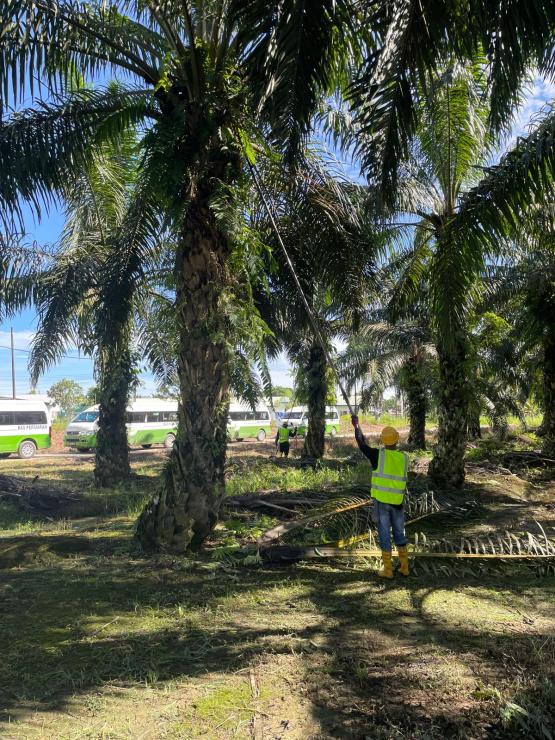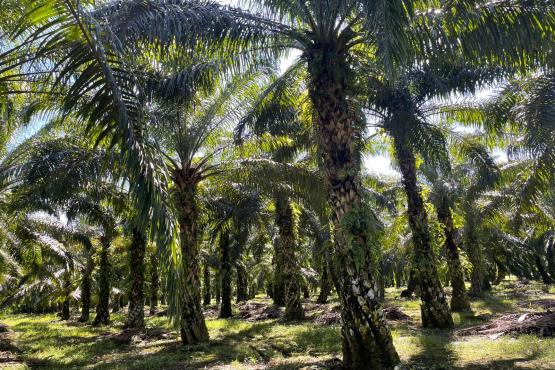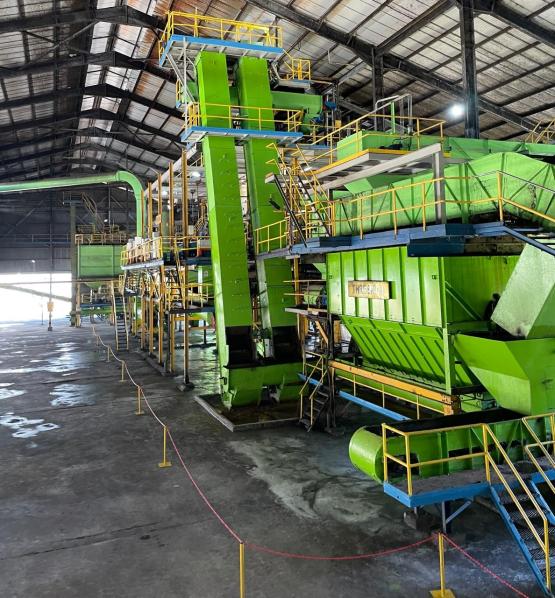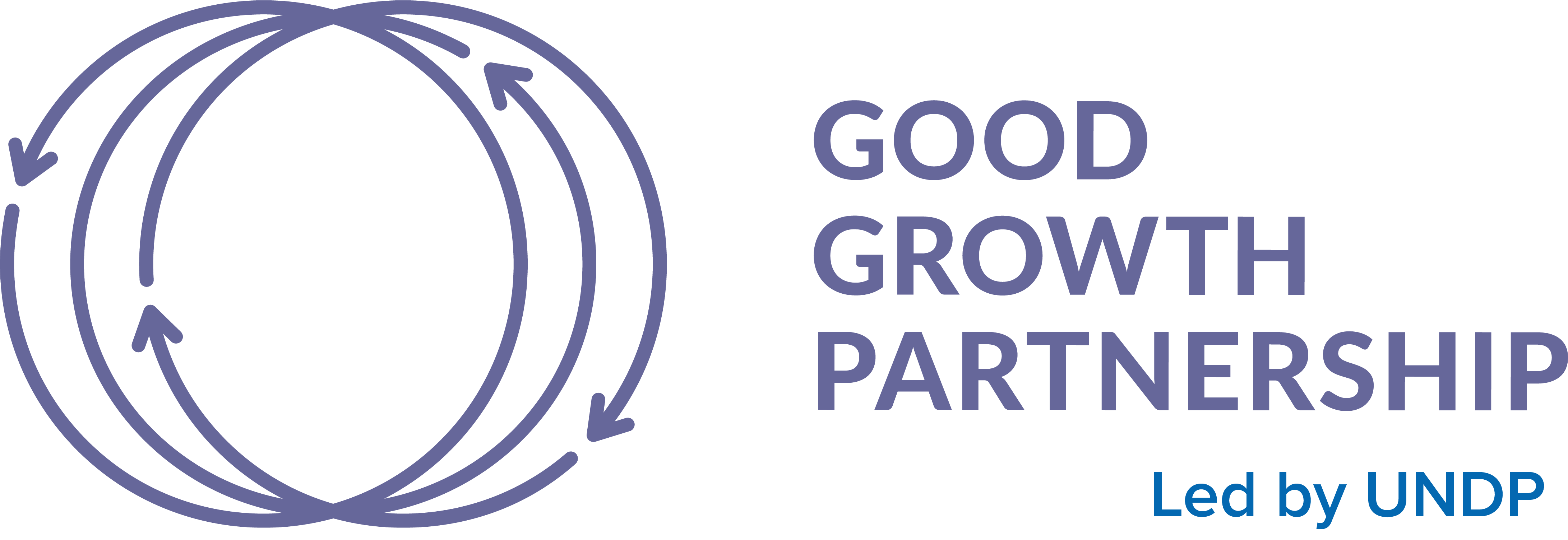Growing demand for palm oil, which is used in food, biofuels, soap and many other products, is placing unprecedented pressure on tropical ecosystems.
Sustainability Opportunities

Worker at oil palm plantation in Malaysia. By Clare Murphy-McGreevey/World Bank
Growing demand for palm oil places unprecedented pressure on tropical ecosystems and drives forest loss. But there is now an opportunity to think beyond the plantation, embracing landscapes and jurisdictional approaches to drive practical strategies for sustainable palm oil management forward. FOLUR country projects are accelerating this transition. Palm oil is a major cause of deforestation and threat to biodiversity – yet it is used in a wide range of products across the world, from chocolate to cosmetics.
Almost half of all demand for palm oil comes from Indonesia, India and China. Palm oil is significantly more productive than other oil crops such as rapeseed oil, sunflower oil and others – producing around 4 tonnes of palm oil per hectare, compared to 0.7 tonnes per hectare for sunflower oil. The sector also provides crucial livelihoods to smallholder farmers, and the economic benefits for communities are significant. Palm can be grown in a range of soil types, particularly in sandy or peat areas where other crops cannot be grown.
There is now an urgent need to rethink the oil palm production model and accelerate a paradigm shift based on nature-based solutions, promoting resource efficiency and waste reduction. The consequences of unsustainable agricultural practices lead to deforestation and land degradation, diminishing soil nutrients, erosion, leading to poor management of water resources, resistance to pesticides and loss of biodiversity.
Palm can be profitable even in peat or sandy soils, conditions in which other crops often cannot grow. On the downside, it also leads to the loss of vast tracts of tropical forests as growers expand their footprint. Peat must be drained before planting palm, a practice that increases planet-warming greenhouse gas emissions. Economic benefits of oil palm production for forest-dwelling communities are often significant, particularly in locations where few alternatives exist.
Our Strategy
FOLUR country projects, which account for the majority of all global production of palm oil, work to make value chains more sustainable and restore forests impacted by palm oil production. Projects focus on working with smallholder farmers whose livelihoods depend on this key commodity: providing financial support to smallholders for replanting ageing and low-yielding trees with certified high-yielding varieties; implementing engagement workshops and training to develop smallholder management plans; deploying community and district mobilizers on the ground; simplifying digital systems for registering smallholder plantations and generally supporting farmers to embrace agroforestry and sustainable agricultural practices.
For example, in Malaysia, FOLUR is working to strengthen the protection of high conservation value areas and high carbon stock areas in Sabah Province, through integrated landscape management. In Papua New Guinea, the country project has established a new sustainable land use learning system, while smallholder farmers have been trained on sustainable measures. 16 communities are already adopting better practices.

Oil palm plantation in Malaysia. By Clare Murphy-McGreevey/World Bank
Country Project Highlights

Oil palm processing plant in Malaysia. By Clare Murphy-McGreevey/World Bank
FOLUR works on palm oil projects in the following countries:
- Guatemala
- Guinea
- Indonesia
- Liberia
- Malaysia
- Nigeria
- Papua New Guinea
- Peru
[Page updated July 2025]







